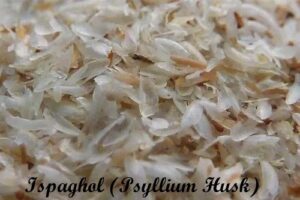The Benefits of Ispaghol: Nature’s Fiber Powerhouse
If you make a purchase after clicking on one of our links, we may get a small commission.
In today’s fast-paced world, many of us struggle to maintain a healthy lifestyle. Fortunately, nature offers us simple yet powerful solutions to our health concerns, and Ispaghol, or psyllium husk, is one of them. This natural fiber supplement has been a staple in traditional medicine for centuries and is making a strong comeback, especially in the realm of digestive health, weight management, and heart wellness.

What is Ispaghol?
Ispaghol, commonly known as psyllium husk, is derived from the seeds of the Plantago ovata plant. It’s primarily grown in India and is recognized for its remarkable fiber content. Unlike many supplements loaded with artificial ingredients, it is purely natural and can provide a range of health benefits.
Understanding Psyllium Husk
Psyllium husk is mainly composed of soluble fiber, which has a gel-like consistency when mixed with water. It acts as a mild bulk-forming laxative, drawing water into the intestines to make bowel movements smoother. But the magic of Ispaghol extends beyond digestive aid. We should plunge into what makes it so helpful!
Nutritional Value of Ispaghol
The nutritional benefits of Ispaghol come from its rich fiber content. Just one tablespoon of this super husk can provide up to 4 grams of dietary fiber, which is about 15% of the recommended daily intake.
Key Components of Ispaghol
It is packed with fiber, but that’s not all. It also contains small amounts of essential minerals like calcium, potassium, and magnesium, all of which contribute to maintaining overall health.
Caloric Content and Fiber Amount
Despite its ability to fill you up, it is very low in calories. A tablespoon serving provides roughly 20 calories, most of which come from fiber.
Health Benefits
Now that we’ve discussed what Ispaghol is and its nutritional breakdown, let’s explore the various health benefits that come with regularly consuming it.

- Promotes Digestive Health
One of the most well-known benefits of Ispaghol is its ability to improve digestion. It works by regulating bowel movements and can be helpful for both constipation and diarrhea.
Improves Bowel Movements
When taken with water, the soluble fiber in Ispaghol absorbs liquid and swells, creating a bulky stool that is easier to pass. This is great news for anyone suffering from irregular bowel movements or constipation.
Role in Preventing Constipation
By increasing the bulk in the stool, it helps push it through the digestive system efficiently, making it an effective natural treatment for constipation.

- Aids in Weight Loss
Looking to shed a few pounds? It can help with that, too! Its fiber content helps you feel full, which can prevent overeating.
Feeling Fuller for Longer
Soluble fiber expands in your stomach and slows the process of digestion, which means you stay satisfied longer after meals. This reduces the urge to snack, supporting healthier weight management.
Supporting a Balanced Diet
Adding it to your diet can help ensure you’re getting enough fiber, especially if you find it difficult to meet daily fiber requirements through food alone.
- Helps Regulate Blood Sugar
For people dealing with type 2 diabetes or insulin resistance, fiber is a valuable ally.
The Link Between Fiber and Glucose
Soluble fiber from Ispaghol slows the digestion of carbohydrates, helping to prevent spikes in blood sugar levels after meals. This makes it easier for the body to manage glucose levels, especially when combined with a balanced diet.
- Lowers Cholesterol Levels
One of the lesser-known benefits of Ispaghol is its positive effect on cholesterol. High cholesterol can lead to heart disease, but soluble fiber is known to help reduce LDL (bad cholesterol).
How Soluble Fiber Works in the Body
The fiber in it binds to cholesterol in the intestines, helping to remove it from the body before it gets absorbed into the bloodstream.
- Heart Health Boost
By lowering cholesterol and regulating blood pressure, it can contribute to better overall cardiovascular health. It helps to keep arteries clear and promotes a healthy heart, making it a simple yet effective heart-boosting supplement.
How to Use It
The versatility of Ispaghol means you can easily incorporate it into your daily routine, whether you take it in powder form or opt for capsules.
When and How Much to Take
The recommended dosage of Ispaghol is usually 1-2 tablespoons, mixed with water, taken once or twice a day. For best results, it should be consumed before meals to promote satiety.
Adding Ispaghol to Your Daily Diet
If you’re not a fan of drinking fiber supplements, you can add Ispaghol to smoothies, yogurt, or even sprinkle it over your cereal. It’s an easy way to increase fiber intake without changing your diet drastically.
Side Effects and Precautions
While it is generally safe for most people, it’s always important to be aware of any potential side effects.
Common Side Effects
Some people may experience bloating, gas, or mild stomach cramps when first taking Ispaghol. To minimize these side effects, it’s best to start with a small dose and gradually increase it.
Who Should Avoid Ispaghol?
Individuals with intestinal blockages, difficulty swallowing, or certain allergies should consult their doctor before using Ispaghol. Additionally, it’s important to stay hydrated while taking it to prevent potential choking hazards.
Choosing the Best Ispaghol
When shopping for it, you’ll notice there are various options available, from powder to capsules. So, how do you choose the best one?
Powder vs. Capsules
Powdered Ispaghol is often more versatile since you can mix it with water or food. However, capsules can be more convenient, especially for those who don’t enjoy the texture of fiber drinks.
Organic vs. Processed
Whenever possible, opt for organic Ispaghol to avoid unnecessary additives or chemicals. Organic varieties are minimally processed and retain the most nutrients.
FAQs on Ispaghol
- Can it be used daily?
Yes, it is safe for daily use, but it’s essential to drink plenty of water to avoid dehydration.
- How quickly does it work?
For most people, it starts working within 12-24 hours, but it may take up to a few days for some.
- Is it safe during pregnancy?
Yes, but it’s always best to consult your doctor before starting any new supplement during pregnancy.
- Can it cause bloating?
Some people may experience mild bloating initially, but this usually subsides as your body adjusts to the increased fiber intake.
- Does Ispaghol have a taste?
It is relatively tasteless, though some describe it as having a mild, earthy flavor. It can easily be mixed into beverages without altering the taste.
